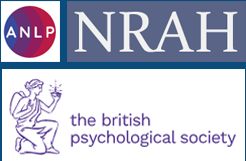NLP stands for Neuro Linguistic Programming and dates back to the 1970s. Richard Bandler and John Grinder at the University of Santa Cruz in California were fascinated by people they considered excellent communicators. The core component of NLP is the process of extricating and replicating the behavioural patterns and structure of an individual who is excellent at any given activity. This is known as modelling.
Bandler and Grinder began their NLP journey by modelling three individuals who are deemed to by geniuses of personal change, namely; Milton Erikson, Fritz Perls, and Virginia Satir.
Therefore NLP began by studying the best communicators and has evolved into the systematic study of human communication. It has developed by adding practical tools and methods generated by modelling exceptional people. NLP is an effective component of applied Psychology and has many uses in self-development, career, education, training, sales and in improving personal relationships
There is no clear cut definition of NLP. The concept however is around:
‘The Influence of Language on our Mind and Subsequent Behaviour’
Neuro – The mind and how we think
Linguistic – How we use language and how it affects us
Programming – How we sequence our actions to achieve our goals
A key part of NLP is that we develop our own mental maps of the world from the information we filter and perceive through our senses. NLP however is more than a set ot techniques; it is a way of thinking, a state of mind, an attitude. There are a number of pillars of NLP:
Rapport – The quality of relationships
Sensory Awareness – Make sense of the world
Outcome Thinking – Knowing what you want
Flexibility – If what you are doing is not working, then do something else
NLP compliments hypnotherapy and assists individuals make significant changes to their life.



